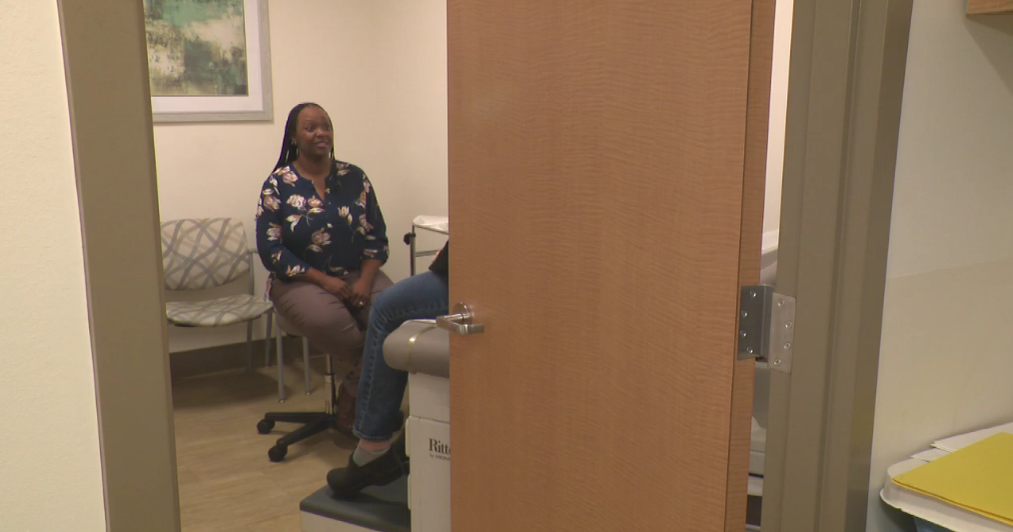Wayne State Study Of Marijuana Therapy Could Affect Public Policy
DETROIT -- A $1.5 million grant to a Wayne State University researcher from the National Institute on Drug Abuse of the National Institutes of Health could have policy implications in Michigan and other states regarding the therapeutic use of marijuana.
Mark Greenwald, professor of psychiatry and behavioral neurosciences in the School of Medicine and director of the Substance Abuse Research Division, is seeking to understand the differences in marijuana use between three subgroups.
Drawn from a pool of 1,800 HIV-positive patients in the WSU HIV clinic, the groups include those who are certified by the state to use marijuana for therapeutic reasons; those who are not certified but report using it at least occasionally for biological reasons such as nausea, pain relief and appetite stimulation; and those who use it only recreationally.
Greenwald prefers the term "therapeutic" to "medical" marijuana because doctors under federal law are prevented from actually prescribing it for their patients. The U.S. Food and Drug Administration does not list marijuana as having a medical use, but under laws in Michigan and some other states, doctors can certify that marijuana use may be beneficial to patients with particular conditions, one of which is HIV/AIDS.
"Implementation of state laws that allow therapeutic marijuana use -- including the Michigan Medical Marihuana Program -- create a significant policy problem because we lack systematic scientific data concerning factors that influence use patterns, abuse potential, decisions to seek or renew medical certification, impact of marijuana use on HIV transmission behaviors and health outcomes," Greenwald said. "Our overall goal is to address these knowledge gaps."
He will conduct two studies. The first, to begin later this year, will involve 150 marijuana-users living with HIV or AIDS.
Fifty will be certified therapeutic users, defined as having valid MMMP registration within the prior three months. Another 50 will be noncertified therapeutic users, those who self-reported marijuana use to alleviate symptoms at least once during the prior three months. The third group will comprise recreational users with no self-reported symptom self-medication during the prior three months.
Greenwald will use behavioral economic simulations to evaluate the sensitivity of patients' marijuana demand to experimental manipulation of unit price and income. He also will determine whether the three groups differ in their use as a function of price, in the relationship between marijuana price and demand for other drugs or therapies, and in the relationship between income and marijuana or other drug use.
"All of these are things that economists would be interested in," Greenwald said. "A lot of policy derives from economic considerations."
Data will be collected at baseline and at quarterly intervals for one year afterward. It will include clinical factors that may influence marijuana use and certification, such as socioeconomic changes; physical and mental health; substance use; criminal involvement; acute care utilization; and HIV risk-transmission behaviors. Clinical data will be used alone, as well as combined with simulated marijuana demand, to predict longitudinal patterns of marijuana and alternative therapy use.
In the second study, researchers will randomly survey 300 of the HIV clinic's 1,800 patients to determine whether patterns of marijuana use in the 150-patient prospective sample can be generalized to the entire clinic.
Researchers will try to determine whether such patterns within a large urban clinic in an area with disproportionally high HIV prevalence are representative of the rest of the country. They also will compare sample characteristics to prior cross-sectional survey data that have been reported outside the United States.
Greenwald expects his data will reveal distinct patterns, achieve a more sophisticated understanding of marijuana use and predict which subsets of HIV patients are likely to benefit or be harmed by marijuana use.
"We're trying to get a big-picture view," he said. "Hopefully that will lead to more informed decision making by both patients and providers so that there's more open, informed, data-based discussion. That could benefit patients and doctors in generating optimal health care plans and also inform policy at a state level, both here and in other states considering legislation."







